Who said that all the good things can only happen to us?
This question posed as an answer, came from my uncle, tossed into the midst of a family conversation sitting in the living room of my nani’s house in Dehradun. We were sifting through old memories—some good, some painful—when he said it. The words hung in the air, met with murmurs of agreement. They felt like an answer to an unspoken question, addressing the quiet discomfort that had settled into my life. Not quite comforting, not entirely critical—just enough to nudge me toward reflection.
For weeks, maybe months, I’d felt weighed down by my own expectations. Each day seemed to drag endlessly, accompanied by the persistent hum of self-doubt. I felt like I was teetering on the edge, one bad moment away from unravelling. And yet, I kept moving forward, because the world doesn’t stop, and I had to begrudgingly move ahead.
That’s when the opportunity to visit Doon Vihar arose. My nani’s house in Dehradun had always been a sanctuary, a place where summers stretched into golden childhood memories. The thought of returning sparked a flicker of excitement, of escape, but as the trip drew closer, quiet dread set in. This visit wouldn’t be like the others. It was a goodbye—a final farewell to the home that had been the epicentre of my childhood. Nani had passed away in late October, and we were returning to perform rituals in her home.
The dread wasn’t just about the house; it was everything. My final semester of college loomed ahead, a period of transition that felt less like stepping into a new chapter and more like standing on the edge of a precipice. The world demanded answers: What will you do next? Who will you become? Adding to that weight was Nani’s loss, a grief that echoed through the family in ways I hadn’t anticipated. I felt a shift in the people I loved most—a yearning for how things used to be, as though I could somehow rewrite the story or slow the passage of time. They say you hurt as deeply as you love, and her absence was proof of that.
Still, we made the journey. The city stirred a strange mix of emotions. It felt both familiar and distant, like a childhood friend you hadn’t seen in years. Walking through the gates of her house in Doon Vihar was like stepping into a memory. The house stood just as I remembered, its walls entrenched with her stories.
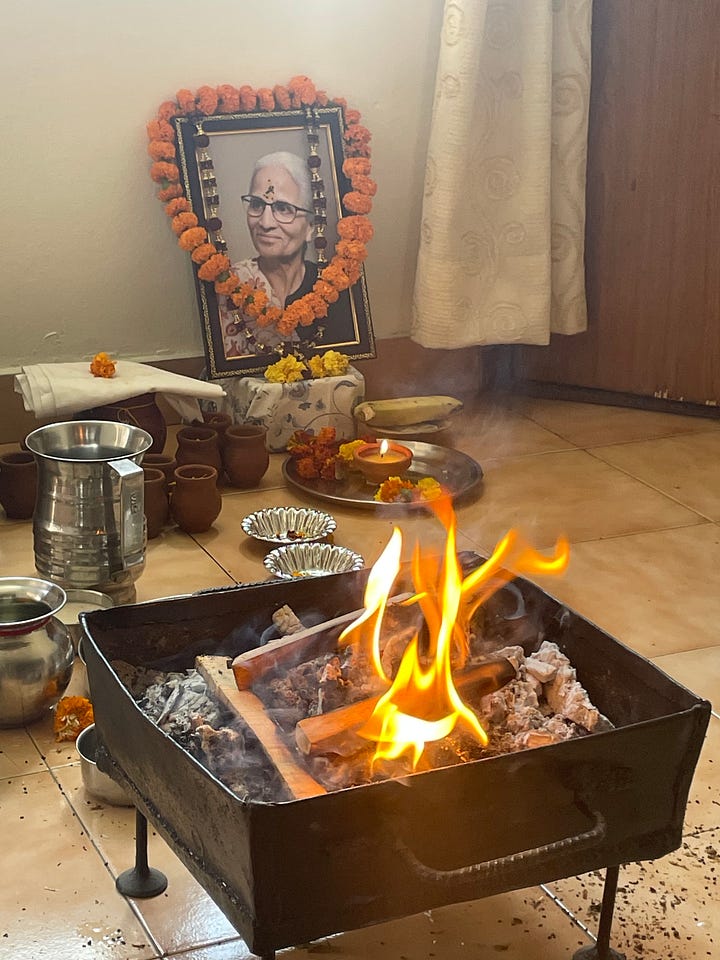
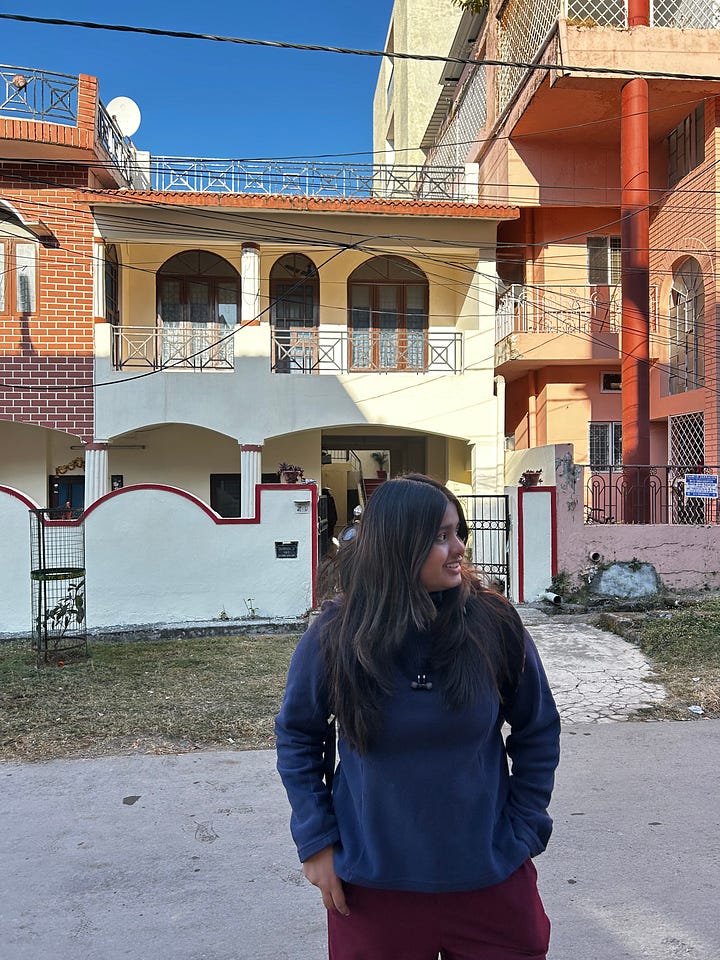
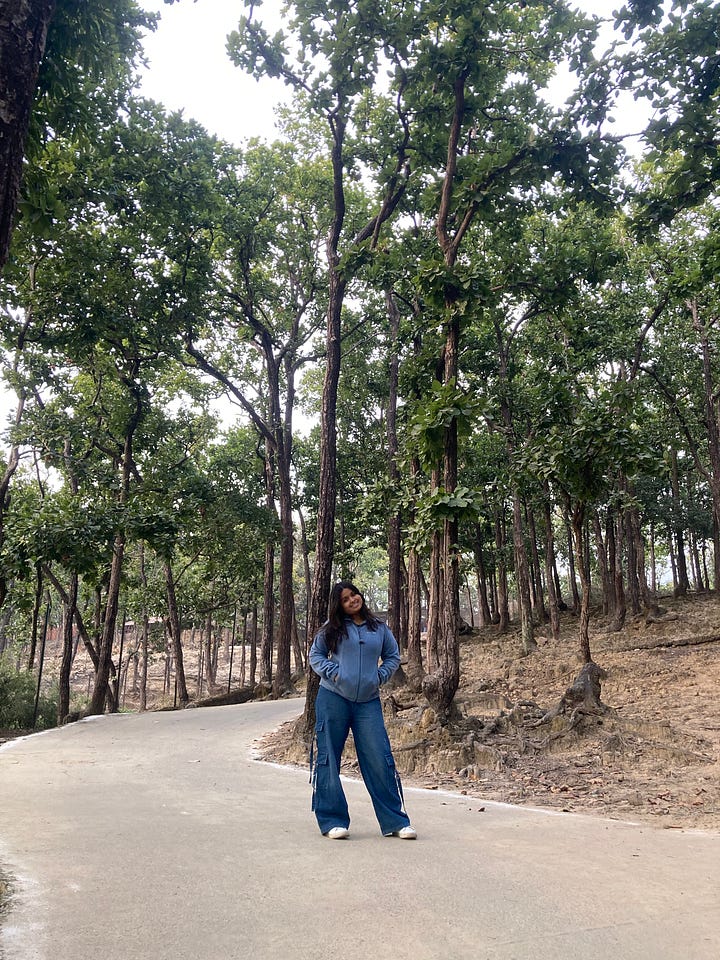
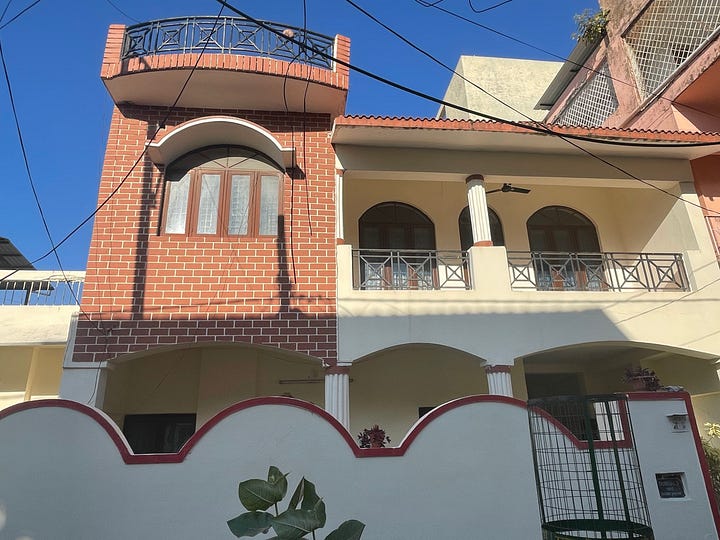
Inside, everything was the same—and yet, it wasn’t. The living room still held the sofa where we’d played endless card games, the kitchen gave me a phantom aroma of her rajma, and the crockery cupboard was filled with photos of us. A framed photograph of her now rested on a cupboard in the living room, her smiling face seeming to reassure us that she was still watching over everything. It wasn’t the absence I had feared; it was a quiet presence, lingering in every corner.
Exploring Dehradun became part of my healing. The Sai Baba Mandir, which we visited every time I went, still radiated serenity. Standard Bakery’s rusks and Ellora’s pastries tasted exactly as I remembered, each bite transporting me back to simpler times. Walking through the streets looking at all so familiar pop and shop shops and that all but familiar Pahadi rhythm of Hindi. Even the cafes my cousin and I visited offered moments of quiet reflection and long conversations, as though the city itself understood the gravity of our visit. It felt almost choreographed as if Nani herself had arranged everything to give us this balance of grief and celebration.
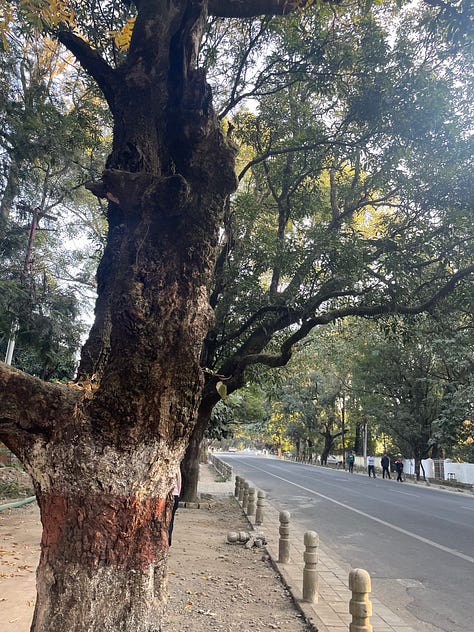
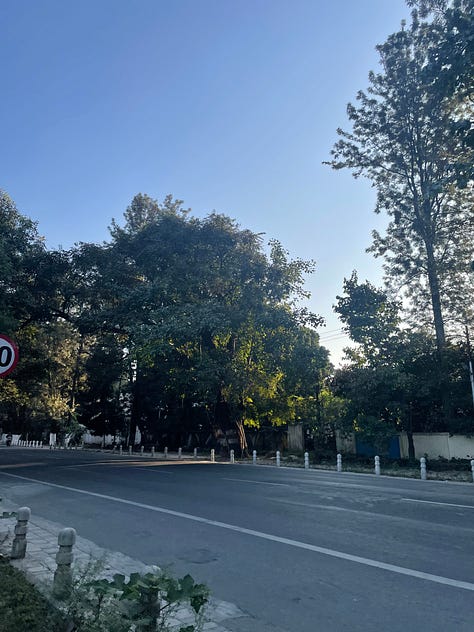


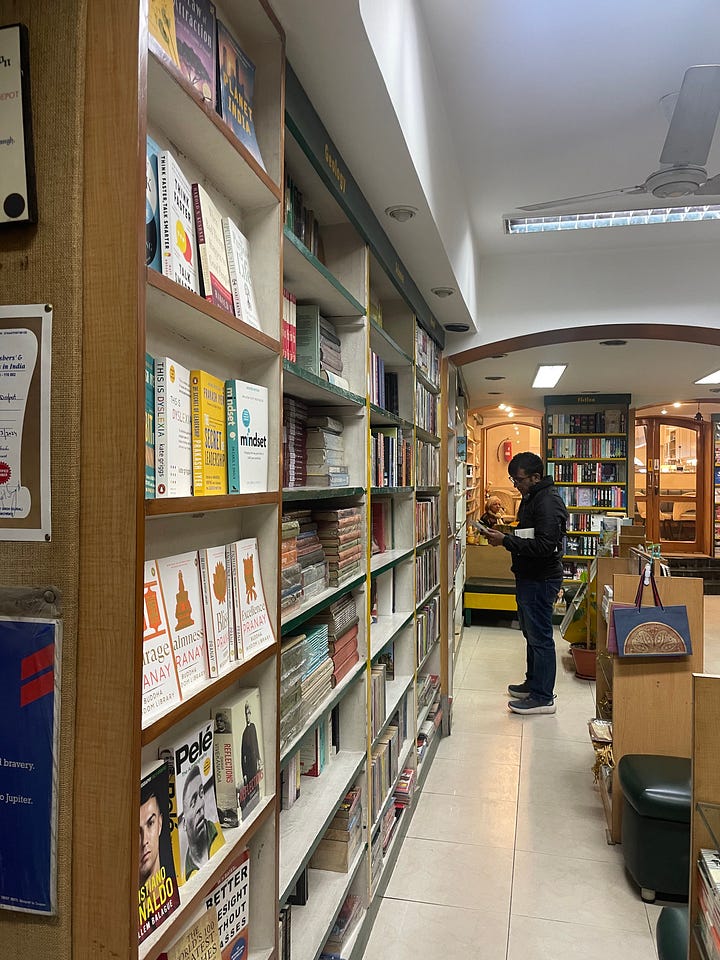
The trip extended beyond Nani’s house. A visit to my paternal grandparents’ village added another layer of depth. Life there moved at a slower pace, grounding me in its simplicity. We peeled grapefruits under the sun, had dal chawal made by my Dadi, and vigorously shook a plastic dabba to make white butter with my Dadaji. These small acts, steeped in rhythm and tradition, reminded me of the richness in life’s unadorned moments—a stark contrast to the chaos I had left behind.
A part of my life has ended, the year has drawn to a close, and with college nearing its finish, I’m left navigating a swirl of emotions I’m still working to understand. It feels like the right time to redefine what life means to me—what success truly looks like, when to push forward, and when to step back. I want to hold myself accountable while also learning to let go of what’s beyond my control—a balance that feels more crucial now than ever.
As I look ahead to 2025, I carry this lesson with me: there will be moments of uncertainty, days when the heaviness returns, and times when I feel lost. But there will also be beauty—if I choose to see it. This intentional perspective gives me a sense of control and hope for what lies ahead.
This past year has been filled with opportunities, growth, and love. It’s incredible to reflect on travelling abroad for the Youth Forum Leadership Summit in Colombo, Sri Lanka, completing my NDTV internship where I even went on-air and held a leadership position I aspired to when I first entered college. Beyond these milestones, there have been countless personal moments and connections for which I am deeply grateful.
As I left Dehradun, I carried more than just memories—I carried the quiet reminder that good things don’t just happen to us. They’re choices we make: seeing love in the cracks, presence in absence, and meaning in life’s fragments. This wasn’t just a goodbye to Nani’s house; it was a reminder of all the love and strength I carry with me, the people that make it special. It was an ending, yes, but also a beginning in its own way.
I have a lot to look back on, which means these questions about the future are all okay. I want to embrace the bittersweet, let go of the fear of endings, and find joy in the spaces between. Endings, after all, can be beginnings in disguise—a chance to redefine, rebuild, and find joy in the spaces between.
“And now let us believe in a long year that is given to us, new, untouched, full of things that have never been, full of work that has never been done, full of tasks, claims, and demands; and let us see that we learn to take it without letting fall too much of what it has to bestow upon those who demand of it necessary, serious, and great things.”
―Rainer Maria Rilke,Letters of Rainer Maria Rilke, 1892-1910
Happy New Year everyone, I hope your year is just as fruitful and happy as you wish it to be! Because good things don’t just happen. We create them, piece by piece, moment by moment. And that, I think, is the most beautiful thing of all.



